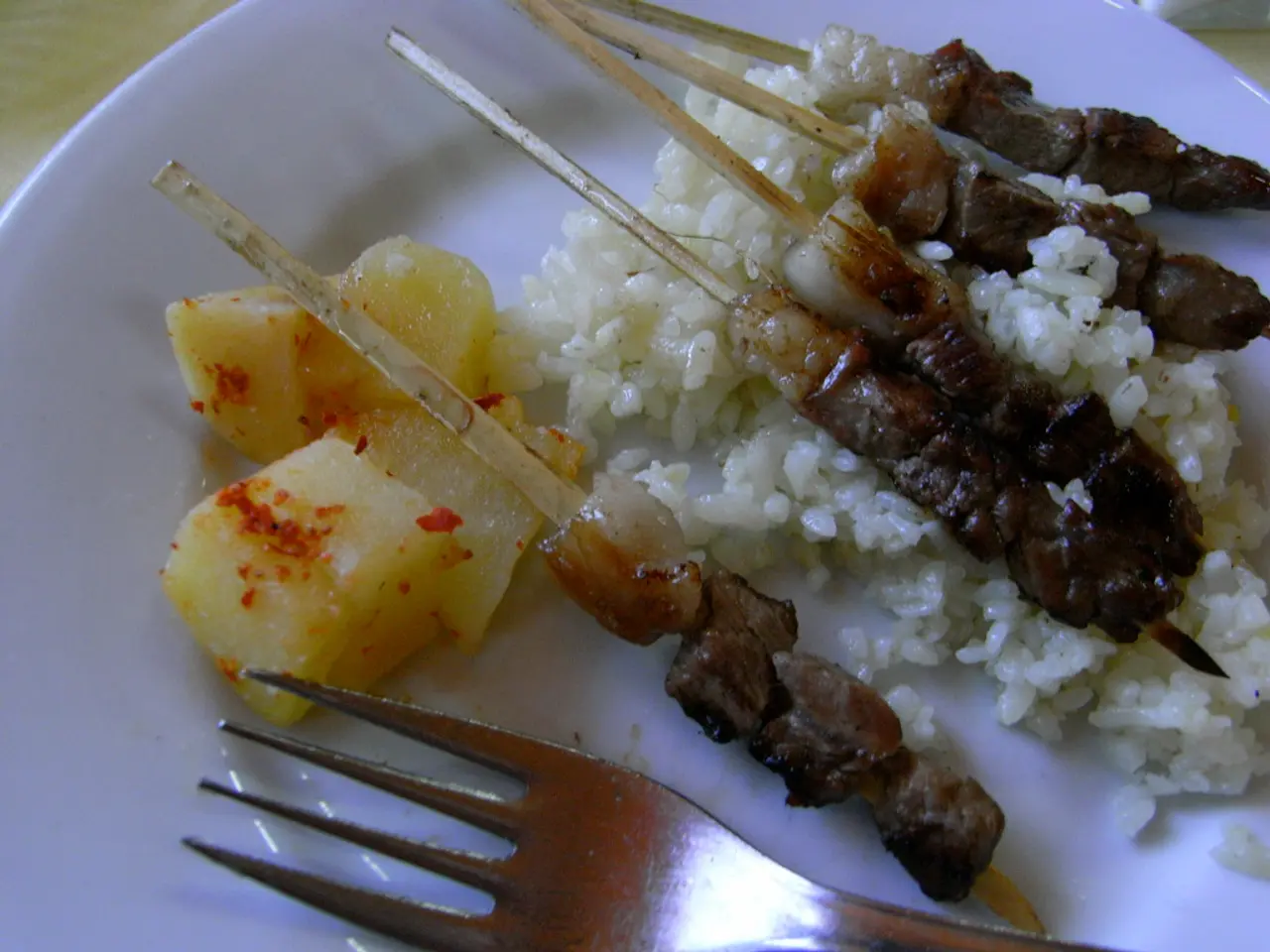Reverse Dish from Palestine: Comprehensive Insight into the Comprehensive Flavors of Maqluba
Maqluba, a celebrated Palestinian rice dish, is more than just a meal – it's a culinary symbol of identity, heritage, and resilience. The name "Maqluba" means "upside down" in Arabic, reflecting the distinctive method of preparation where the cooked pot is flipped upside down for serving, revealing an attractive layered presentation of meat, vegetables, and rice.
### The Magic of Maqluba's Ingredients
At its core, Maqluba consists of main ingredients such as tender meat (usually chicken or lamb), long-grain rice (like Basmati), fried or sautéed vegetables (such as eggplant, cauliflower, potatoes, and carrots), caramelized onions, and a medley of essential spices including turmeric, allspice, cinnamon, and black pepper. Sumac and za’atar, typical Palestinian spices, also contribute to the regional flavour profile.
To add a touch of luxury, toasted almonds or pine nuts can be sprinkled on top as a crunchy finishing touch. For an even more complex flavour, a pinch of saffron can be added to the broth.
### Cooking the Perfect Maqluba
The cooking method for Maqluba is straightforward yet effective. The meat is layered in the bottom of a pot, followed by the fried vegetables, and then the rice. Water or broth is added, and the pot is cooked slowly on the stove. Once done, the pot is inverted onto a serving platter, creating the "upside down" presentation with the vegetables and meat on top.
To achieve perfect rice texture, it's recommended to rinse and soak Basmati rice before cooking. Fresh, high-quality vegetables are essential for the best flavour in Maqluba.
### The Cultural Significance of Maqluba
Maqluba is traditionally served during family gatherings and special occasions, symbolizing hospitality and communal sharing. Palestinian cuisine, including dishes like Maqluba, is deeply tied to the land through its indigenous ingredients such as olives, olive oil, sumac, and za’atar, which carry cultural meaning amid the political struggles faced by Palestinians.
Preparing and sharing Maqluba is an act of preserving cultural memory and resisting cultural erasure in the face of occupation and displacement. It honours ancestral traditions and asserts Palestinian connection to their land and history.
Serve Maqluba warm with a side of yoghurt or cucumber-yoghurt salad for a refreshing balance, and enjoy this traditional dish that represents more than just a meal – it's a celebration of culture, heritage, and resilience.
- Maqluba's ingredients include tender meat like chicken or lamb, long-grain rice (such as Basmati), fried or sautéed vegetables (like eggplant, cauliflower, potatoes, and carrots), caramelized onions, a medley of essential spices, and regional spices such as sumac and za’atar.
- To add an element of luxury, toasted almonds or pine nuts can be sprinkled on top of Maqluba, or a pinch of saffron can be added to the broth for added flavour.
- The cooking method for Maqluba is straightforward, with the meat, vegetables, rice, and broth slow-cooked in a pot and then inverted onto a serving platter for an attractive layered presentation.
- Rinsing and soaking Basmati rice before cooking is recommended for achieving perfect texture, while fresh, high-quality vegetables are essential for the best flavour in Maqluba.
- Maqluba is traditionally served during family gatherings and special occasions, symbolizing hospitality and communal sharing, and is deeply tied to Palestinian land through its indigenous ingredients.
- Preparing and sharing Maqluba is an act of preserving cultural memory and resisting cultural erasure in the face of occupation and displacement, honouring ancestral traditions and asserting Palestinian connection to their land and history.
- Serve Maqluba warm with a side of yoghurt or cucumber-yoghurt salad for a refreshing balance, and enjoy this traditional dish as a celebration of culture, heritage, and resilience, part of the food-and-drink, travel, and cultural-travel aspects of the Mediterranean lifestyle.





